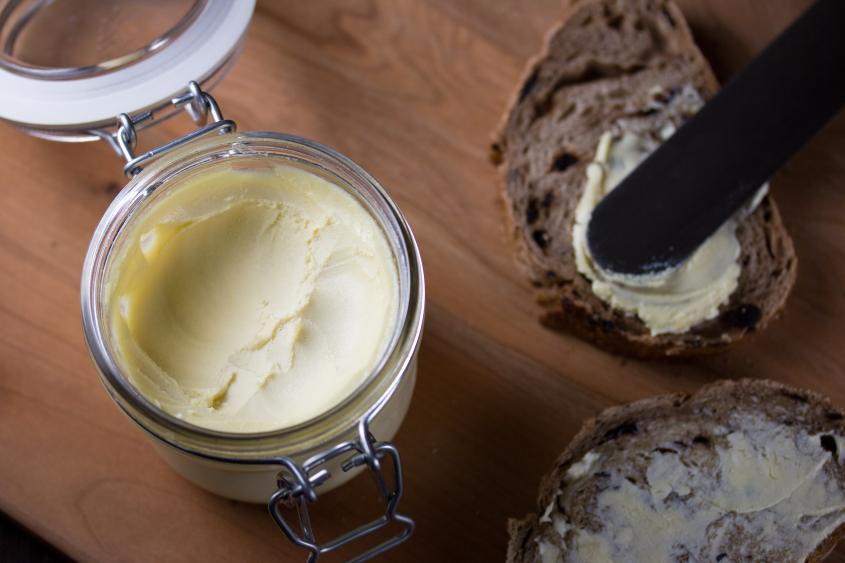
The March Paper of the Month is from Journal of Nutritional Science and is entitled: ‘Effect of a plant sterol-enriched spread on biomarkers of endothelial dysfunction and low-grade inflammation in hypercholesterolaemic subjects’. Authors: R. T. Ras, D. Fuchs, W. P. Koppenol, C. G. Schalkwijk, A. Otten-Hofman, U. Garczarek, A. Greyling, F. Wagner and E. A. Trautwein
Cardiovascular disease, which includes coronary heart disease (CHD), is the leading cause of morbidity and mortality worldwide. Many CHD cases can be prevented by addressing unhealthy diets and lifestyles. By making small changes in their daily habits, people can manage their risk factors such as elevated blood cholesterol.
Plant sterols are lipid-like compounds found in foods of plant origin such as in everyday foods like vegetable oils, nuts, seeds, grains, legumes, fruits and vegetables. Consuming 1.5 to 3 g of plant sterols per day is effective in lowering LDL-cholesterol concentrations by 7 to 12.5%. Evidence for this comes from several meta-analyses including up to 124 studies (Ras et al., 2014). Foods like margarine and dairy products (milk, yoghurt) with added plant sterols are currently on the market and are supported by European and American authorized health claims (EC 2014; US FDA 2013).
So far, no research has been performed looking into a direct relationship between the intake of these foods with added plant sterols and lower CHD risk. A better understanding of the possible role of plant sterols in CHD prevention is needed. We therefore investigated the effects of plant sterols beyond LDL-cholesterol lowering, by studying their effects on endothelial dysfunction and low-grade [EP1] [RR2] inflammation.
In a 12-week randomized intervention study, 240 hypercholesterolemic, but otherwise healthy individuals consumed either a margarine with added plant sterols (3 g per day) or a placebo margarine. Blood lipids and biomarkers of endothelial dysfunction and low-grade inflammation were measured.
We hypothesized that plant sterols could beneficially affect endothelial function and low-grade inflammation, both because [RR3] hypercholesterolaemia is linked to endothelial dysfunction and because plant sterols are well known for their LDL-cholesterol-lowering effect. However, in our study, regular intake of a margarine with added plant sterols did not change plasma concentrations of biomarkers of endothelial dysfunction and low-grade inflammation in hypercholesterolaemic men and women.
Possibly the smaller than anticipated reduction in LDL-cholesterol observed in this study (on average -7%) was not sufficient to trigger actual changes at the endothelium. Based on data from meta-analyses (Ras et al. 2014), a plant sterol intake of 3 g/d would reduce LDL-cholesterol by on average 12.5%. More research is needed to further unravel the relationship between plant sterol intake, LDL-cholesterol-lowering, endothelial function, low-grade inflammation and CHD risk.
Despite these neutral findings, the LDL-cholesterol lowering potential of plant sterols is largely [RR4] undisputed. Various authoritative bodies such as the International and European Atherosclerosis Societies recommend plant sterols as a way to lower elevated LDL-cholesterol concentrations in their guidelines on managing blood lipids and/or CHD risk (Reiner et al., 2011).
References
Commission Regulation (EU) No 686/2014 of 20 June 2014 amending Regulations (EC) No 983/2009 and (EU) No 384/2010 as regards the conditions of use of certain health claims related to the lowering effect of plant sterols and plant stanols on blood LDL-cholesterol.
Ras RT, Geleijnse JM, Trautwein EA. LDL-cholesterol-lowering effect of plant sterols and stanols across different dose ranges: a meta-analysis of randomised controlled studies. Br J Nutr 2014; 112: 214-219.
Reiner et al. ESC/EAS Guidelines for the management of dyslipidaemia: the Task Force for the management of dyslipidaemias of the European Society of Cardiology (ESC) and the European Atherosclerosis Society (EAS). European Heart Journal 2011; 32: 1769-1818.
U.S. Food and Drug administration. Code of Federal Regulations Title 21 Food and Drugs. 2013.
